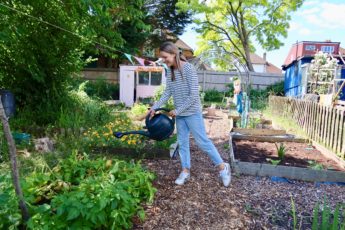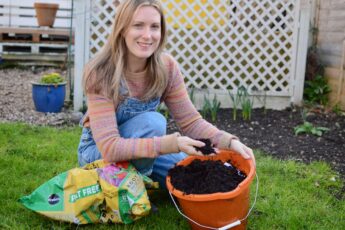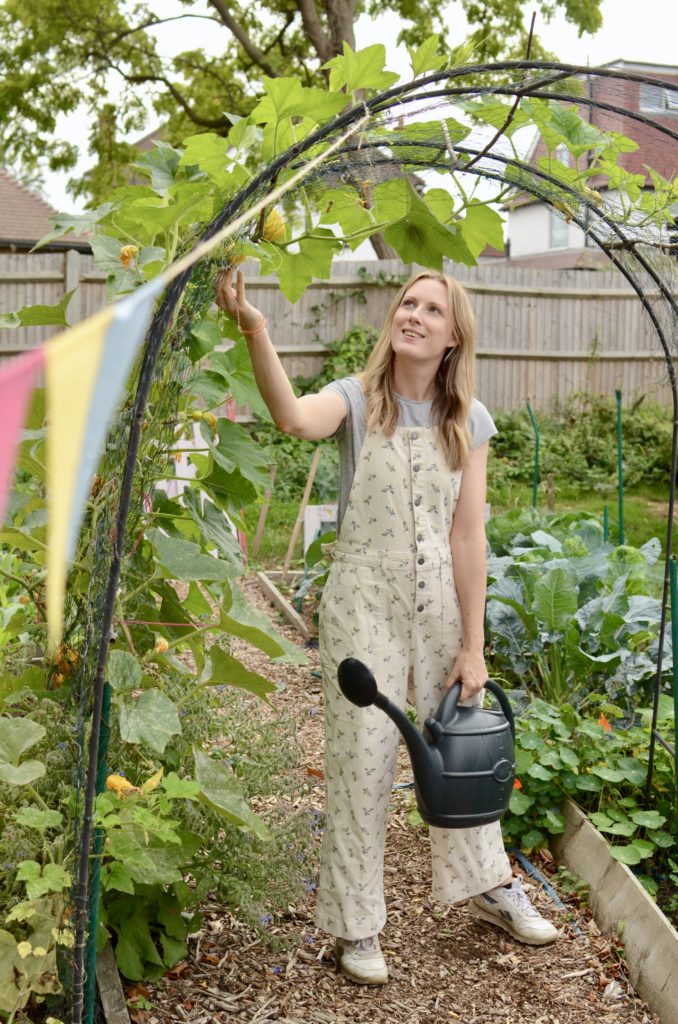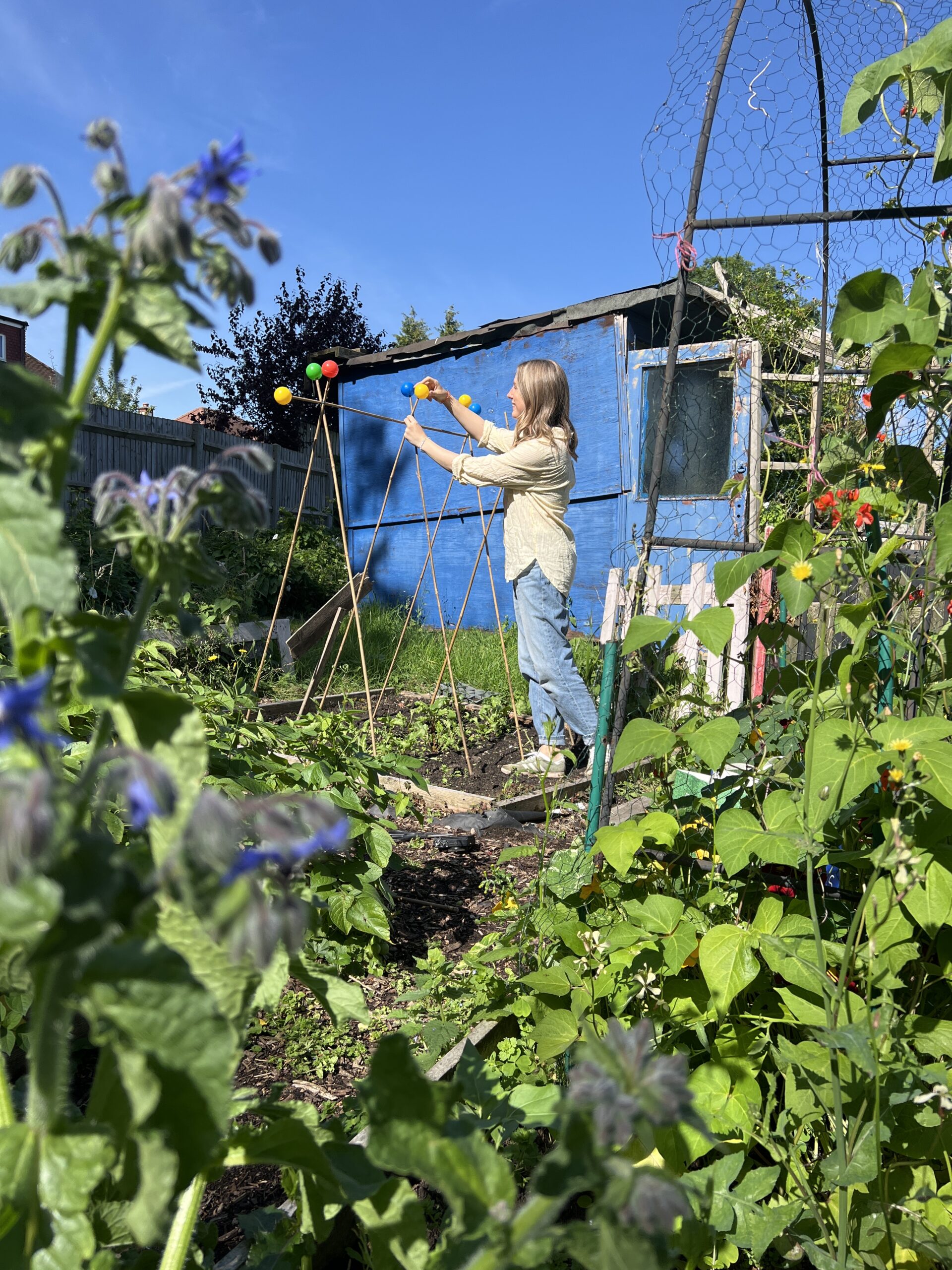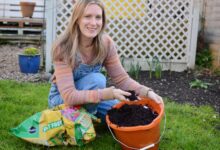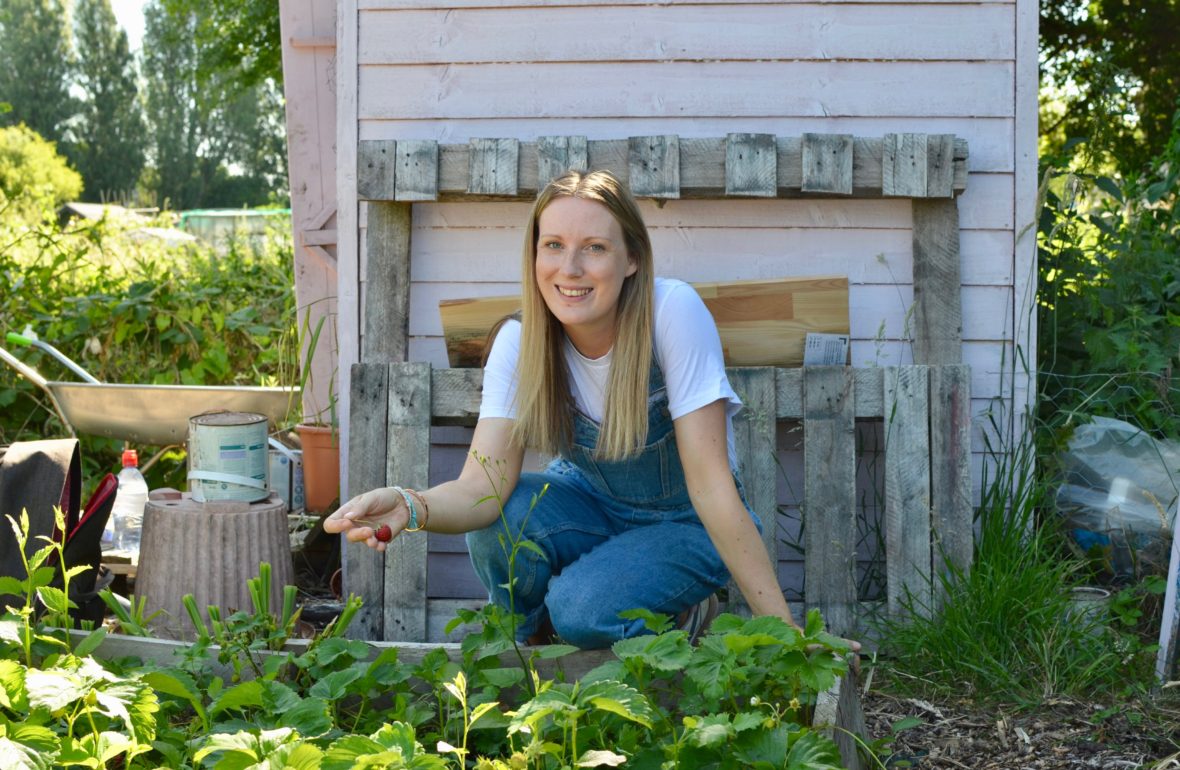
How can you avoid allotment burnout? Is allotment burnout even I real thing?! Well yes, it really is. Every single year I see the same thing. New allotment holders turning up at their plots in early spring and putting everything they have into it! They spend hours weeding, putting in raised beds, building sheds and poly tunnels. In the space of a couple of weeks their plots are pristine and beautiful.
Then, along comes the springtime. A few crops go in, but all of a sudden they stop showing up as much. The weeds take hold and the plot begins to return to its original state. Maybe the show up a few more times attempting to tackle the new jungle. But inevitable, they stop showing up completely and the plot goes back to the way it was at the beginning.
I think this is a common story from most allotment plots. It’s not their fault and they are definitely not lazy. They have allotment burn out!
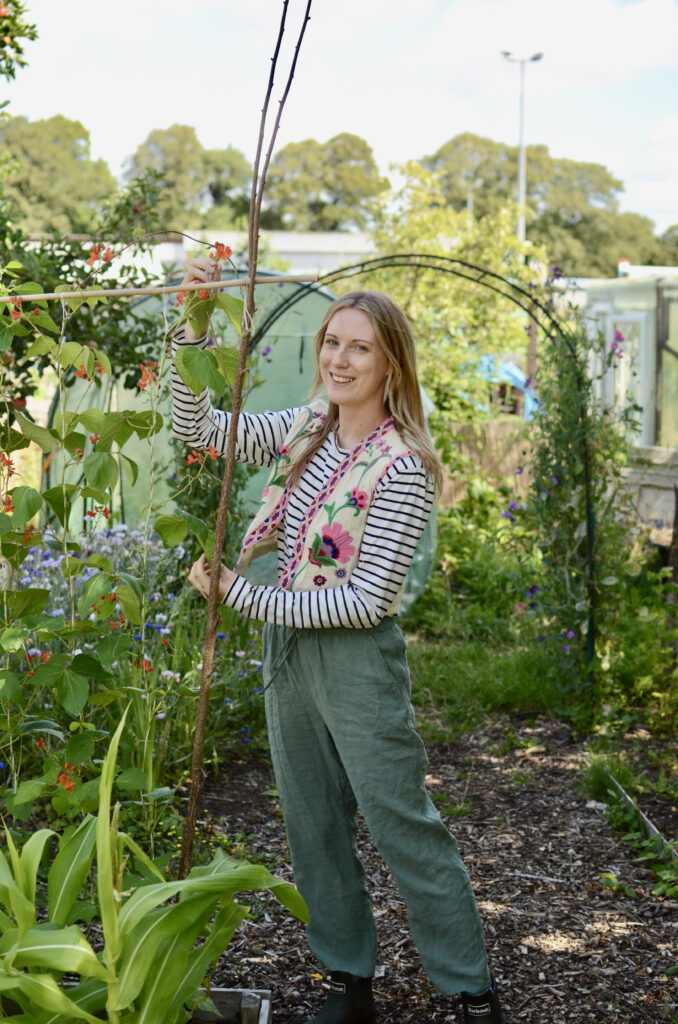
Allotment burnout can happen to anyone. So what’s the difference between allotment holders who have kept their plots in good condition for years and years and allotment holders who can’t seem to make it through one summer? How do you avoid the dreaded allotment burn out and keep on top of all those jobs? Keep reading to find out!
I don’t want this article to come across as preachy in any way. I’m still a fairly new allotment plot holder myself, this is only my forth year on the plot. I’ve definitely come close to complete allotment burn out over the past couple of years, but something has kept me going. It’s also one of the biggest questions I get asked on my social medias. How do I keep up with it all? How do I keep my plot is a good condition?
I’ve put together a few tips for you and I hope they help:
HOW TO AVOID ALLOTMENT BURNOUT
- TAKE IT SLOW
When you first get a your allotment plot it’s exciting! That allotment key is like a magical ticket to a secret paradise that you feel you’ve been locked out of for years! So it’s normal to want to do it all straight away. Chances are your plot will need a fair bit of work at the beginning too, and that impatience to want to be planting in exciting yummy crops can mean you find yourself working for hours at a time. This is the perfect way to get burnout!
Rome wasn’t built in a day and gardens won’t grow overnight. Little and often is key to ensuring you stay on top of the jobs without getting burnout!
2. MAKE A PLAN
Having a coherent plan for your allotment plot will help you to keep on top of everything and stay on track. I actually release an allotment planner every year which you can purchase on Amazon (new one coming in October!) My planner has lots of tick boxes and room to plan the different stages of your allotment plot. This way, you can plan jobs for each day, week and month as well as reflect on your progress throughout the year.
Plans keep you on track and make sure that even if you miss a few trips to the plot, you don’t fall behind on the bigger picture.
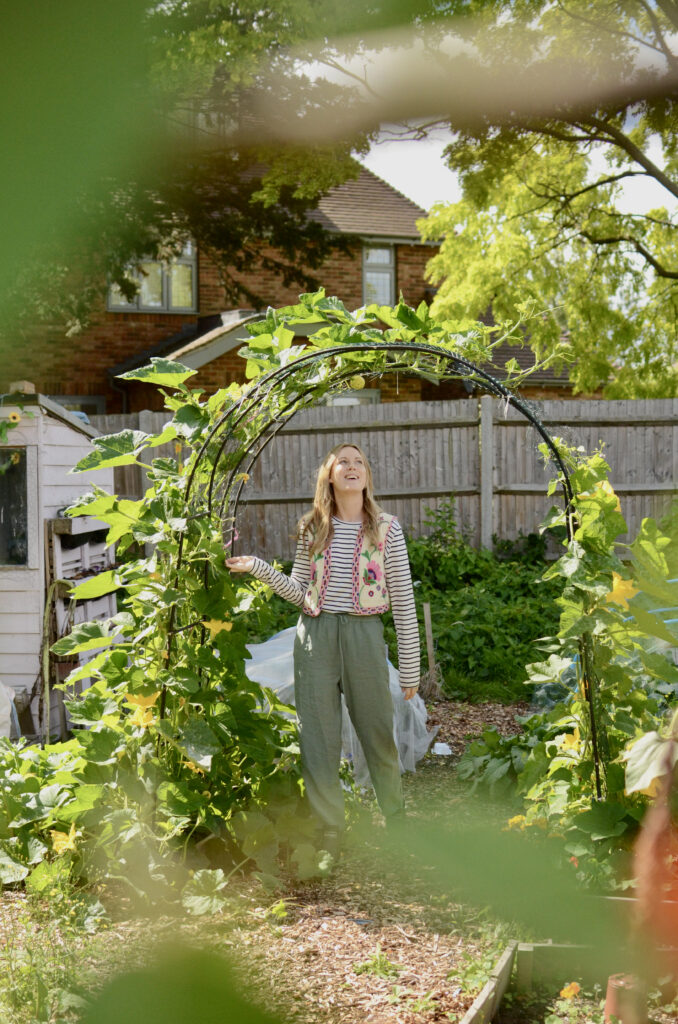
3. LEARN TO GO WITH THE FLOW
Gardens rarely do exactly what you want them to do! They are absolute rebels and can’t wait to go completely off plan. Weeds want to dominate and crops that you want to grow will often not even try! So, learning to go with the flow and adapt to the pace of your garden will be key.
For a long time I would spent my time at the allotment fighting nature. I was determined to make the plot into exactly what I wanted it to be and keep it that way! I quickly learned that plants don’t do what you want them to all the time and if you don’t want to get complete burnout, it’s probably best to learn to accept that!
This is where my saying ‘whack it in’ came from. I would just start whacking plants and seeds in, hoping for the best but planning for the worst and always having new plants or seeds on standby should they not grow. If it grew, it was a bonus. If it didn’t… never mind. I’d just whack something else in.
In my opinion this is the best way to garden!
4. HAVE THE RIGHT TOOLS
I think this is something I’ve had to learn the hard way, but having the right tools for the job is pretty important! For a long time, I just couldn’t afford to buy the correct tools, so I would use whatever I had available. It works, don’t get me wrong and I have managed to grow a fairly successful garden with hardly any tools at all! But, if you want to avoid that allotment burnout, having the right tools for the job will help massively.
There’s nothing worse than getting to your plot and seeing tonnes of new weeds or grass as high as your knees, and just not having the tools to tackle it. A good strimmer and a hoe are pretty vital and make very quick work of tough jobs.
I used to spend hours and hours weeding by hand but since having my hoe, it takes about 20 minutes per bed. This gives me so much time to focus on other jobs, jobs that make me excited and happy and makes the allotment days much more enjoyable.
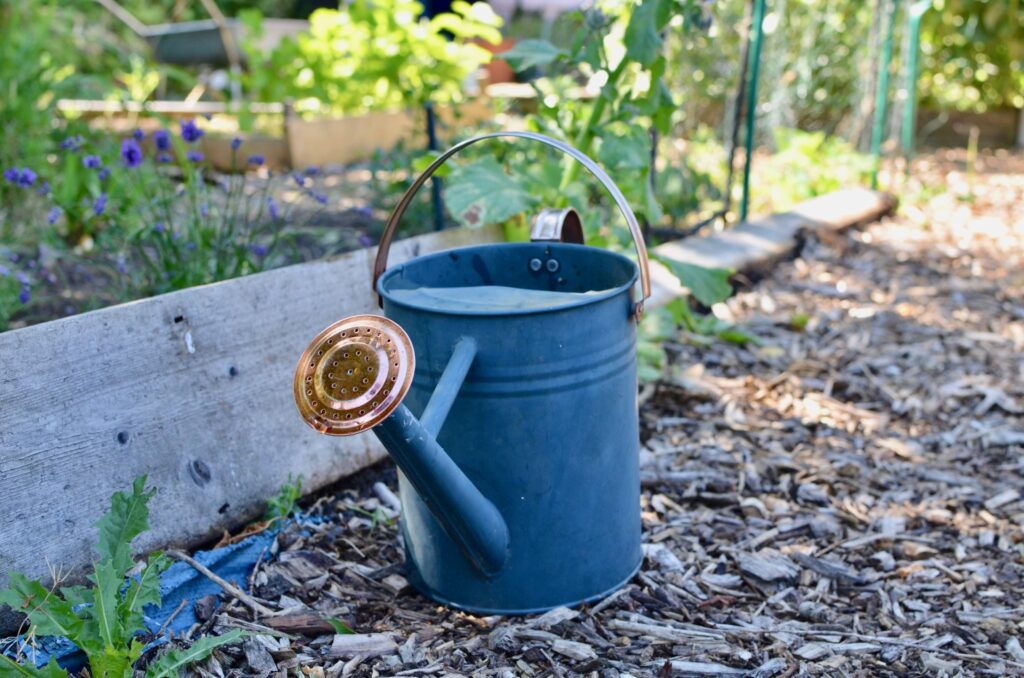
5. LOWER YOUR EXPECTATIONS
I think this is a good piece of advice, alongside ‘expect the unexpected’.
When I first got my allotment plot, I had this idealised version of what I wanted it to look like in my head. Every day, I would work towards this version, not knowing that it was actually causing me a lot of stress and ultimately burnout.
It’s ok that your allotment plot doesn’t look perfect. What even is perfect?! Every garden has weeds, every allotment has beds that don’t quite grow right and every gardener has days where they feel like everything has fallen apart and they’ve failed! Perfection in a garden is just letting it grow and accepting all the little imperfections.
There will always be crops eaten by slugs, beds that look more dead than alive and areas that are so overgrown all you can do is cover them with ugly plastic weed membrane. This is allotment life. So lower those expectations, move away from those instagram perfect pictures and embrace your allotment plot for what it is.
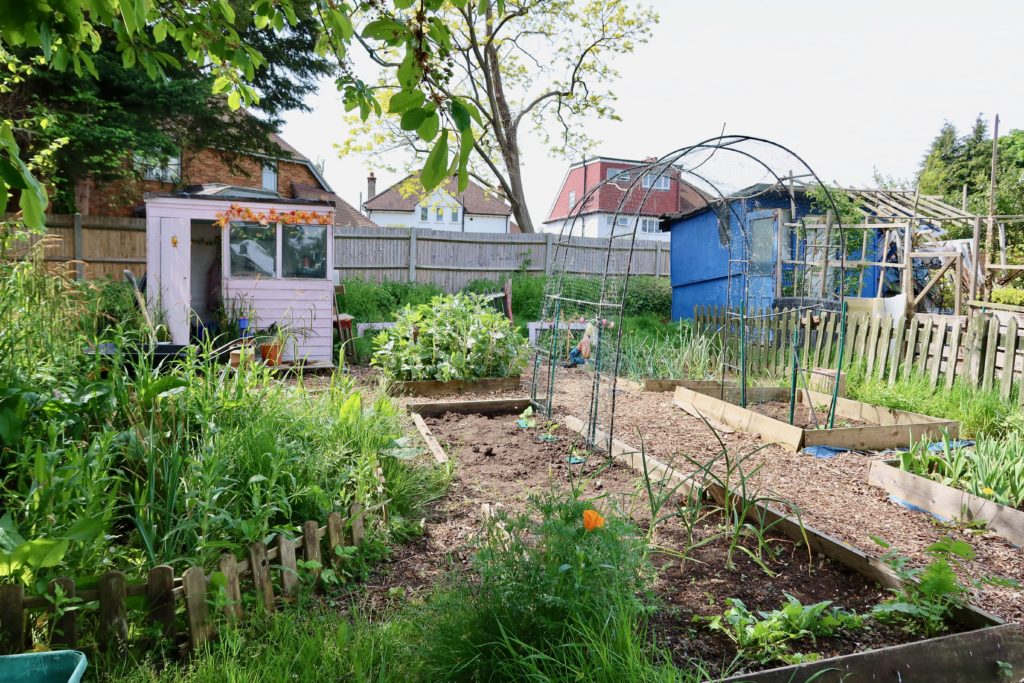
I do hope that these tips help you to avoid the dreaded allotment burnout. Unfortunately, taking long breaks from your plot in the spring and summer months will result in a very overgrown garden. So you have to make plans to ensure you are spending a good amount of time on your allotment without pushing yourself over the edge.
Try to remember why you started, try to make time to go to your plot and just enjoy it without working difficult jobs and most of all, remember that gardens aren’t grown overnight. They take time and commitment.
You can always take a nice long break over the winter months so you’re ready to return nice and refreshed in the spring!
Good luck, and stick with it!


